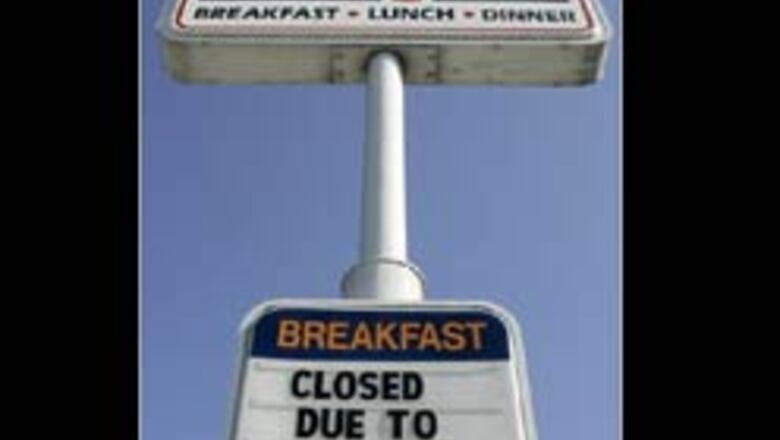
views
Beijing/London: Japan and Germany said on Thursday they would plough billions of dollars into their economies, hoping to provide a cushion against a deep recession and complement a series of expected interest rates cuts.
Japan, the world's second biggest economy, unveiled a 5 trillion yen ($51 billion) package of spending measures to support its economy and Germany planned a range of steps worth up to 25 billion euros ($32 billion) to boost business. "I will implement bold policies so people who are confronting pain will feel the real effect," Japanese Prime Minister Taro Aso wrote in his weekly email magazine published on Thursday.
"Drawing on all possible wisdom, we must overcome this 'once in 100 years' crisis." Growing fears that the world is slipping into a downturn has forced authorities to use any means to protect their economies. Four more of the world's top central banks are forecast to have have reduced interest rates by the end of next week.
Japan was also expected to follow a raft of interest cuts, most notably in the United States and China, with the European Central Bank, Britain and Australia doing the same net week.
Japan's benchmark Nikkei average index closed up 10 per cent, its third straight day of gains. Europe's top share index was virtually flat. Germany's stimulus package is expected next week.
"All together we are talking about a volume of perhaps 20 billion euros to 25 billion euros," Peter Struck, parliamentary floor leader of the SPD, which shares power with Chancellor Angela Merkel's conservatives, told the Berliner Zeitung.
Hours after the US Federal Reserve slashed its main policy rate by a half point to 1 per cent, Taiwan, Hong Kong and a number of Gulf countries followed suit. As well as lowering the cost of money, the US central bank made more of it available: it announced four new currency swap lines with Brazil, Mexico, South Korea and Singapore worth $30 billion each to help ease dollar funding shortages that have crippled money markets around the globe.
PAGE_BREAK
The move boosted South Korea's markets, which have been hurt by fears that banks and companies would be unable to get their hands on enough dollars to meet maturing debts. The won jumped 14.2 per cent against the dollar, its biggest daily rise in 11 years, while Seoul shares rose 12 per cent. "With this deal, Korea secured a 'safe dollar supplier' in the Fed and that will ease concerns over a dollar liquidity shortage," said June Park, an economist at Woori Investment & Securities.
The Fed said the pace of US economic activity appeared to have slowed markedly and it expected inflation to moderate as a result of lower energy and commodities prices. US data later on Thursday is expected to show that the economy shrank in the July-to-September quarter. Taiwan cut rates by a quarter-point on Thursday, its third reduction in about a month.
Hong Kong, whose rates move in tandem with the Fed's, duly lowered its base rate by half a point. China had already cut its borrowing costs on Wednesday, for the third time in six weeks, as had Norway.
Governments have pledged about $4 trillion to support banks and restart money markets to try to stem the crisis set off by the bursting of a U.S. housing market bubble. But many are looking at taking further measures to protect their economies against recession.
US regulators are finalising a new federal programme to provide up to $600 billion in government guarantees of home mortgages to help prevent foreclosures, a source familiar with the talks said. The programme could be announced as soon as Thursday, the source said.
Britain indicated it may lift self-imposed limits on government borrowing to counter a recession, while South Korean President Lee Myung-bak said his government would bring forward budget spending and consider ramping up construction spending.
On top of the four swap lines arranged by the Fed, the International Monetary Fund approved an emergency short-term liquidity facility for emerging market economies so they can tap cash to help them weather the credit crisis. Still, poor corporate earnings suggested the economic impact of the financial crisis is only starting to show.




















Comments
0 comment